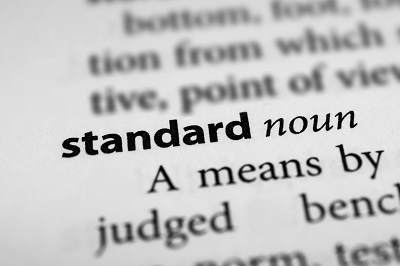The U.S. Court of Appeals for the Ninth Circuit recently rejected a so-called “flat-rating” claim, holding that a company that sent letters demanding that hospital patients pay their overdue medical bills did not create a false or misleading impression that the company was actually participating in collecting the debts in violation of the federal Fair Debt Collection Practices Act (FDCPA), because the company meaningfully participated in the hospital’s efforts to collect debts. A copy of the opinion in Echlin v. PeaceHealth is available at: Link to Opinion. The plaintiff received treatment at a hospital but failed to pay the medical bills. After…
Posts tagged as “FDCPA”
The U.S. Court of Appeals for the Eighth Circuit recently joined with the Third, Fourth, Sixth, Seventh, and Ninth Circuits in applying a materiality standard to section 1692e of the federal Fair Debt Collection Practices Act (FDCPA). In doing so, the Eighth Circuit affirmed the trial court’s order granting judgment in favor of a debt collector and against a borrower. A copy of the opinion in Hill v. Accounts Receivable Services, LLC is available at: Link to Opinion. On Oct. 30, 2015, a debt collector filed suit in Minnesota state court against a borrower for unpaid medical bills and statutory interest under…
In an important decision for the debt buying industry, the Massachusetts Supreme Judicial Court held that passive debt buyers are not “debt collectors” under the Massachusetts Fair Debt Collection Practices Act (MDCPA). A copy of the decision in Dorrian v. LVNV Funding, LLC is available at: Link to Opinion. An amicus brief filed by Receivables Management Association International and written by Maurice Wutscher attorneys in support of the appellant is available at: Link to Amicus Brief. In Massachusetts, “debt collectors” must obtain a license from the Division of Banks, the state agency tasked with regulating debt collection in the Commonwealth. Under the MDCPA,…
Joining with the Fourth and Ninth Circuits, the U.S. Court of Appeals for the Seventh Circuit recently affirmed a trial court’s summary judgment order in favor of a debt collector and against a debtor finding that the debt collector did not violate the federal Fair Debt Collection Practices Act (FDCPA) by only verifying the information in its records instead of contacting the creditor to verify the debt. In so ruling, the Court also held that the debt collector did not violate the federal Fair Credit Reporting Act (FCRA) because it conducted a reasonable investigation into the disputed information. A copy…
The day before the Second Circuit shut down reverse-Avila claims with its decision in Taylor v. Financial Recovery Services, Inc., the U.S. District Court for the Eastern District of New York dismissed an FDCPA Avila claim involving potential future fees and costs in Derosa v. Computer Credit, Inc. A copy of the opinion is available at: Link to Opinion. This recent chapter in the post-Avila saga involves a consumer who incurred a small hospital debt. A collector sent a letter that used the words “PAST DUE AMOUNT: $174.15” to inform the consumer of the balance. The letter contained no mention of interest, fees,…
Just over two years to the day after it issued its opinion in Avila v. Riexinger & Associates, LLC, the Second Circuit Court of Appeals has issued a critical blow to a recent spate of FDCPA lawsuits attempting to create liability out of thin air. A copy of the opinion in Taylor v. Financial Recovery Services is available at: Link to Opinion. In Avila, the Second Circuit held that a debt collector violates the FDCPA by stating the “current balance” of a consumer’s debt without disclosing that the balance is increasing due to the accrual of interest or fees. In Avila, the debt…
The U.S. District Court for the Southern District of Florida recently granted summary judgment in favor of a defendant debt collector in a putative class action alleging violations of sections 1692g and 1692e of the federal Fair Debt Collection Practices Act (FDCPA), holding that the “debt validation notice” letter at issue was neither confusing nor misleading under the applicable least sophisticated consumer standard. In so ruling, the Court held that naming the payment processing company with whom the consumer had dealt, as well as the bank that had actually issued the credit at issue, did not violate the FDCPA. A…
The U.S. Court of Appeals for the Sixth Circuit held that a plaintiff asserting only a bare violation of the federal Fair Debt Collection Practices Act (FDCPA) failed to identify a cognizable injury traceable to the defendant’s alleged conduct, and therefore failed to demonstrate Article III standing. In so ruling, the Sixth Circuit reversed the trial court, and dismissed the appeal and underlying case for lack of jurisdiction. A copy of the opinion in Hagy v. Demers & Adams is available at: Link to Opinion. After the borrowers defaulted on their mortgage loan, the loan servicer initiated foreclosure proceedings against them. Subsequently,…
The U.S. Court of Appeals for the Third Circuit held that a collection letter sent to collect a time-barred debt that makes a “settlement offer” to accept payment “in settlement of” the debt could potentially violate the federal Fair Debt Collection Practices Act’s (FDCPA) general prohibition against “any false, deceptive, or misleading representation or means in connection with the collection of any debt.” 15 U.S.C. § 1692e. Accordingly, the Third Circuit vacated the ruling of the trial court dismissing the complaint, and remanded the matter for further proceedings. A copy of the opinion in Tatis v. Allied Interstate, LLC is available…
The U.S. District Court for the Southern District of Florida recently held that a dialing system — which required calls to be manually dialed, could not place calls without human input, and could not dial predictively, or store or produce telephone numbers independently, which in this case was the Avaya X1 Platform — was not an automatic telephone dialing system (“ATDS”) under the federal Telephone Consumer Protection Act. Accordingly, the Court entered summary judgment in favor of the defendant mortgage loan servicers. A copy of the opinion in Ferrer v. Bayview Loan Servicing, LLC et al. is available at: Link…
The U.S. Court of Appeals for the Tenth Circuit recently held that the Rooker-Feldman doctrine did not bar the trial court from considering the plaintiff’s claims because she was not challenging or seeking to set aside an underlying non-judicial mortgage foreclosure proceeding under Colorado law. Accordingly, the Tenth Circuit remanded to the trial court to determine what effect, if any, the non-judicial proceeding had under the doctrines of issue and claim preclusion. A copy of the opinion in Mayotte v. U.S. Bank National Association is available at: Link to Opinion. The borrower signed a note secured by a deed of trust. The…
The U.S. Court of Appeals for the Seventh Circuit recently held that “debt collectors cannot immunize themselves from FDCPA liability by blindly copying and pasting the Miller safe harbor language” where that language is inaccurate under the circumstances. Accordingly, the Seventh Circuit reversed the trial court decision granting the debt collector’s motion to dismiss. A copy of the opinion in Boucher v. Finance System of Green Bay, Inc. is available at: Link to Opinion. The plaintiff debtors were Wisconsin residents who incurred and defaulted on debts for medical services. Their creditors sold those debts to the defendant collection agency, which in turn…












